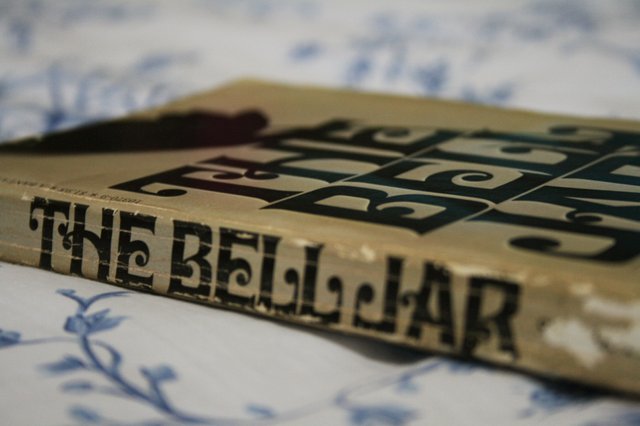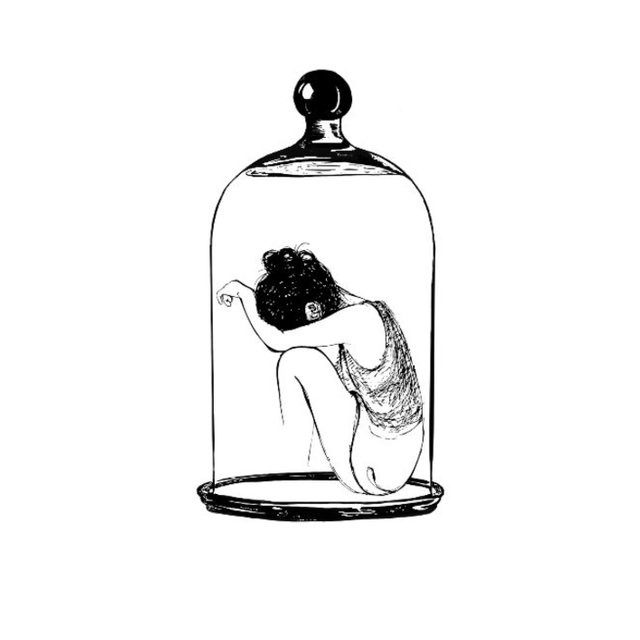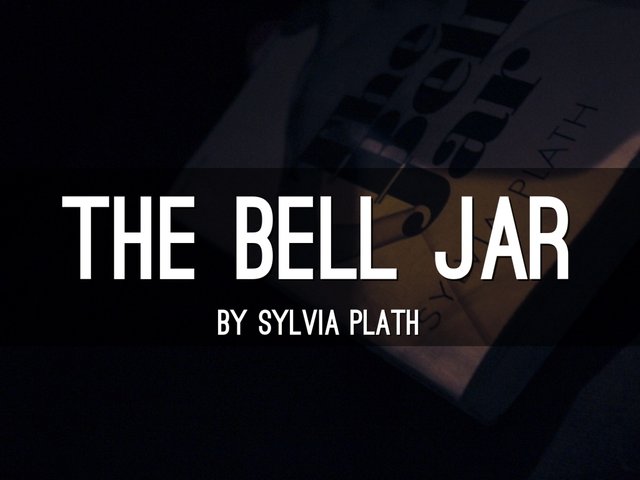Book Review - 'The Bell Jar' by Sylvia Plath

Once upon a time I was an avid reader. Harry Potter had me hooked from a young age, and as early as 5th grade I was reading works such as Huckleberry Finn and To Kill a Mockingbird. It was actually a source of pride for me that in Elementary School I was reading at a college level, but eventually I fell out of the habit. I really want to get back into it though, and recently I've been reading once again. So I'm going to start a series of book reviews for anyone who's interested. For the first one I want to talk about a novel I just finished yesterday morning 'The Bell Jar' by Sylvia Plath.
This is one of those books which your high school English teacher forces you to read and everyone hates them for it. I had a few friends who's teachers used it as part of the curriculum but I never had the pleasure, and I'm really glad I didn't as I feel that if I were forced to read this in school I wouldn't have gotten any enjoyment out of it. Reading it now however? I think it was amazing.... Seriously, I'd like to thank Reddit for recommending it to me.

'The Bell Jar' is a semi autobiographical tale written by Sylvia Plath paralleling her own descent into mental illness with the main character Esther Greenwood's. This is characterized best by the following quote from the book when Esther is attempting to write her own novel "A feeling of tenderness filled my heart. My heroine would be myself, only in disguise." Small bits of self awareness such as this are part of why I enjoyed this story as much as I did. So much of this book is about real people and events in fact that one woman who was written into in came out and said that it actually brought about the end of her marriage due to private information being brought to light.
The bare bones of the story is this. Esther is a college student who along with around a dozen other woman is granted a summer internship for a prominent magazine in New York City. At the start of the story, while obviously slightly troubled by her place in life, she's a relatively normal girl. As the book goes on however she slowly becomes more and more depressed and delusional. What really struck a chord with me is that there's no set event which prompts this fall from grace, it just naturally happens over time. One quote from the novel which really stuck with me was when Esther was lying in bed pondering this "I wondered why I couldn't go the whole way doing what I should any more. This made me sad and tired. Then I wondered why I couldn't go the whole way doing what I shouldn't... and this made me even sadder and more tired" This in particular stuck out because most people who've ever gone through a bout of depression can absolutely relate to this, and it was the point which really signified the beginning of the characters fall.

The thing which I loved about this book the most was the way in which it portrayed Esther's mental illness. I really got the sense throughout that I was privy to two opposing tales. As the reader you're painfully aware of the fact that there's something terribly wrong with her inner thoughts and actions. However as the change is so gradual there's also a tendency to see it as completely normal. It's easy to perceive there to be nothing wrong with her, and that's the beauty of The Bell Jar. It highlights how to the individual, even the most severe of depressive episodes can come off as completely rational, while to an outside viewer it's horrifying. On top of that, this thing is damn beautifully written. The way in which the author conveys emotions is done in a way that I've never seen before, and the descriptions of the settings in which our characters are residing is executed with such precision that it rivals what I've seen from Stephen King. From the third chapter this thing drew me in so much. My initial plan was to read a few chapters and go to sleep.... then I ended up staying awake an extra 3 hours reading 80% of the novel, only to wake up early the next morning and finish it before going into class.
This next Paragraph is littered with Spoilers, and if you've never read this book then I'd recommend you do so and come back to this.
I haven't looked anything up about this, so my analysis of it can be completely contrary to the general consensus. However I interpreted the whole "Bell Jar" metaphor like this. The Bell Jar is representative of the depression which Esther is dealing with. She oftentimes expressed a sentiment of being trapped inside the jar, and how she hoped that if she one day found happiness it would never constrict her again. And to me the ending was symbolic of the jar finally being lifted. While I was at first disappointed that it ended before her interview with the doctors, her simply walking into the room is the perfect conclusion in retrospect. Although I did revisit the very beginning and note that the entire book is actually narrated by a future Esther. As she references certain things from the start of the story in the past tense and alludes to the fact that she had a baby. So I guess that if anything, the beginning can be interpreted as the true ending to the story, albeit an incomplete one.

I enjoyed The Bell Jar immensely. I have to nitpick to really find any issues with it, but my only complaint would be the fact that the language used can at times seem slightly awkward from the perspective of someone born in the late 90s and reading in 2017. That doesn't take anything away from the content however, although I would never recommend this to someone who's not a proficient reader or writer, and it's certainly not for everyone. This is a story which a lot of people need to read. It's in a way a feminist statement from a time when feminism was actually needed. It's an insightful look into the shortcomings of it's time period. It's a damn phenomenal book.
10/10
I adored this book! It tore my emotions to shreds, which was awesome.